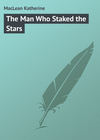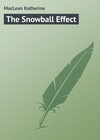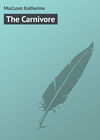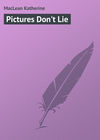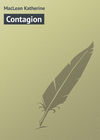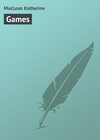Читать книгу: «The Man Who Staked the Stars», страница 4
After the first hour had given him a good test, Bryce decided that the evening was as bad as he had anticipated. He stood on the outskirts of a small group, holding a drink and watching resentfully as a startlingly beautiful woman laughed and talked with the others of the group and not with him. She had been introduced to him as Sheila Wesley. The jokes she had with the others were quick and subtle flashes of wit and insight, and seemed to be based on a mutual understanding that he could not share, even though some of the others had just been introduced and had been strangers to each other a few minutes back; it was something he grasped vaguely as a common background and approach to life that they shared, perhaps through education.
There were quick references to political situations they all seemed familiar with, or a name that could have been some character in a book they might all have read, or could have been somebody in history, each reference followed by a subdued laugh and an added witty statement from some other quarter. No one of them gave a word to him or noticed that he was there.
Why should they? He was dressed well and expensively, but so were they all. He was a person of prominence and power, but so were they all, and bored by it. He could not talk like the others. Then what could he do to make Sheila Wesley smile at him the way she smiled down at the ridiculous little fat man beside her as he excitably stuttered out his opinions.
Sheila Wesley was not like Mona, to be captured by money and clothes and influence. Would she be impressed even by the power he would have later? He tried to picture her as tremulous and awed, hanging on his words and flattering him, but he couldn't believe it. She probably wouldn't notice him any more than now. There was nothing he could do to impress her. He had thought Mona had poise, but now he saw that her manner was just an inadequate carbon copy of a completely spontaneous original. The woman, Sheila, managed to be poised, aloof, and yet friendly to everyone, simultaneously warm and unattainable.
He desired to be bitingly rude. That, at least, would make her admit that he existed. She was smiling at that ridiculous little fat man again.
He drained his glass and, completely unnoticed, left the party. Nobody would miss him, he was sure.
Outside in the corridor, Roy Pierce, his assistant, was engaged in conversation with two young men and two girls.
"There he is now," he heard Pierce say.
And one of the young men came toward him laughing.
"Is it true that this lunatic cannot go and make up with the lady of his heart because she has had him banned? If we all try to smuggle him in – "
And one of the girls, a really gorgeous blonde, called, "He was just telling us about that time you were in space with the pirates after you and they had stolen the big focusing mirror from the first Belt foundry furnace. I'm sure you can tell it better – you tell it."
He was surrounded by the five then. "Go ahead," they were urging, laughing, "Go ahead!" "It didn't really happen did it?"
This accusation was made by the pretty blonde. He looked at her half indignantly. "I don't know how he tells it but it happened." And he began to tell what had happened.
The two girls and the two young men listened, adding occasional startled interjections and admiring laughter.
Pierce inserted an occasional question and Bryce became aware that in answering them he was guided to stress and amplify points that made clearer the danger and comedy. Later he became aware that he was half consciously following the clues of Pierce's expression for the right stress and mood of the telling, now off-hand and smiling in telling what he had done, now heavily dramatic mimicking and burlesquing the tones and threats of the outlaws, now ironic and bitterly indifferent in passing over damage and deaths – as a wryly lifted eyebrow in the dark young face listening, and a faint imperceptible shrug made him see what had happened from a different angle than he had seen it then. Pierce apparently had something he needed, a good story sense. Following him must be something he had learned unconsciously last night, but it worked. He could see how well it worked in the expressions of his audience.
Someone leaving the party had stopped to listen, standing behind his right shoulder. When he finished, amid the exclamations and sighs of his listeners a cool, familiar voice drawled.
"That's quite a story. I picked up something about that at the new foundry on reef five, but it was already an old yarn then." She stood before him, still smooth and poised and lovely, offering her hand. "I'm glad to hear it from the horse's mouth. Aren't you Bryce Carter? We were introduced in there, I think, but the name didn't click."
It was Sheila Wesley.
That evening was something to remember.
First they were a private party at a nightclub, then at a small restaurant. Tom, Betty, who was the pretty blonde, Ralph and the pretty brunette whose name was Marsha, Pierce, himself and Sheila. The talk ranged wildly over a multitude of subjects, breaking sometimes into collective fantasies of nonsense like a hat full of fireworks that left them laughing helplessly, sometimes shifting to philosophy and mutual confidences. Every so often Pierce brought the subject around to something that struck home to Bryce and he found himself holding forth with unexpected passion and eloquence, and he was surprised to see that the others were keenly interested.
Pierce rarely said more than an occasional cheerful remark, but in the more subtle plays of conversation Bryce found himself still half consciously consulting the cues of his expression to find what his own reaction should be, to find the right word and the right attitude that pleased the table and urged them all on to greater and more fantastic heights of talk. It was obvious that Pierce never had any difficulty understanding anyone. He had an instinct that Bryce lacked, and Bryce willingly surrendered to superior skill and followed his silent lead.
Sheila he discovered, besides being a member of one of the top diplomatic families, had worked for a short while as a consultant at the Belt plastic manufactory when it was being set up, and had taken to space life. She shared his enthusiasm about the future of the Asteroid Belts.
It was an unprecedented evening. At the close of it he had four new friends, and had discovered that "Tom" was Thomas Mayernick, one of the attorneys of the Spaceways Commission, and one of the men whom he had gone to the dinner to meet.
And Sheila, tall and slender and beautiful, pressed his hand as the group parted, and said in her wonderful voice, "I want to see you again Bryce," she smiled. "I eat at the technicians' end of town, you know. I'll be with a Group at Geiger's Counter, tomorrow lunch. If you bear the company of slide rule artists we'd be glad to see you any time."
He stood for a moment, oddly surprised.
"Say thank you to the lady." Pierce smiled. And to Sheila, "You shouldn't startle people like that, Ma'm. His heart's weak."
"I just dropped dead," Bryce said, finding words. "You aren't leading me on? You'll be there?"
"On my honor," she smiled. "Good night, Bryce." She was used to such tributes. Half mocking as they were, she knew how much they were basically sincere, and accepted their tribute to her beauty as a matter of course. What a wife to have and introduce as his wife to other men, and see the look in their eyes.
He remembered suddenly that he had not once mentioned that he was a Director of UT. Somehow the conversation had never been led to a subject where he could have said it. He made a mental note to tell her next time. It seemed strange that he had been with five people so many hours without informing them that he was a Director of UT. He had done the same thing last night, now he remembered. But they had seemed to like him without it.
He let himself into his hotel room and turned on the light, but the first sidewise glimpse of himself in the mirror was disturbing. He solved that problem by the remarkably simple expedient of turning the light out again, and undressed in the dark, grinning foolishly.
VI
Approaching the scientists' and technicians' row along the subsurface arcades, the expensive restaurants grew fewer and were replaced by German-type beer halls, schools with courses advertised in their posted schedules whose titles were completely unintelligible to him, and second hand bookstalls selling battered technical books and journals whose titles were undecipherable in any tongue Bryce could think of. The lunch hour crowds were beginning to pour out into the arcades from elevators and tube trains in a rush to get first place in their favorite eating places.
Pierce half turned as if his eyes caught on the expression of a face behind them.
"Carter! There you are, you bastard!" The voice came from behind him, thick with rage, but more than that was the insult. It meant challenge. This was nothing in which Pierce could defend him!
Bryce wheeled, left hand automatically plucking out his magnomatic, wondering if the attacker would be the honorable kind of duelist who would hold fire long enough for him to get his gun out.
Miraculously it seemed to be happening. He already had his sights halfway on to the speaker when he recognized him, a gross heavy figure he had seen a hundred times. Mr. Beldman of the Board of Directors. What was he doing on the Moon?
Beldman stood with his fists on his hips and his legs spraddled, sneering at Bryce. "That's right," he said, heavily sarcastic, "start shootin' when you're surrounded by innocent spectators; when you know I can't draw on you. That's the way of a crook." The husky base voice echoed from the walls. Behind him to the bend of the corridor people were scattering hastily out of the firing line.
Crook was the central word. Somehow Beldman had found out that Bryce was responsible for the corruption of UT, and he was dealing with the matter in the most direct way that it could be dealt with, for a death in a private duel would be laid to a quarrel and not investigated.
How had he found out? Bryce forced down the question as he stiffly reholstered his magnomatic. There was no use thinking of that until the question of surviving the next five minutes was settled. He stood with his hands empty, feeling curiously empty inside, oddly missing the white rage and love of murder that usually carried him through such things.
It seemed too good a day to spoil. He would rather have continued his way to lunch with Sheila, and let the man live – or let himself live. This would be no duel for a little bloodletting. Beldman's purpose was to kill. And Beldman himself, knowing what he knew, had to die. "Do you understand what you have said, sir?" Bryce used the formal words of the dueling countries.
"You're damn well right I do!"
"Are you prepared to take the consequences, sir?"
"More ready than you are," Beldman said, his hands still on his hips. He amplified his remark with a few well chosen words that harked back to his truck driving days.
"How many shots?" Bryce asked more softly, beginning to want to kill.
"Until one of us is down with his gun out of his hand."
Bryce repeated the provision to the crowd that had drawn up discreetly along the side-lines. "We fire until one of us is both down and disarmed."
There was a murmur of surprise among the crowd for that was an unusual and deadly provision for a formal duel. As Bryce paced backward the required number of paces, counting aloud, two men volunteered as seconds. They came forward to compare the guns rapidly and show them to the duelists. It had to be done and finished rapidly, for lunch hour had begun with its flood of people into the corridors, and they were holding up traffic.
Bryce's gun was a .42 magnomatic, working on an electrical acceleration of the slug by electromagnetic rings in the thick barrel. It was soundless except for a legal built-in radio yeep that announced its firing and number to the police emergency receivers. Beldman's gun was another maggy of the same make but heavier with a wide-mouthed barrel apparently throwing a much heavier caliber slug.
"Ready?" The second stepped back to the edge of the crowd and began counting off half a minute by seconds.
The faces of the crowd faded from his consciousness. Bryce stood with his hands empty at his sides as the seconds were counted. "Thirty, twenty-nine, twenty-eight, twenty-seven," came the voice, counting evenly and loudly. The world narrowed to a corridor of space with the blocky figure of Beldman at one end and himself at the other. Funny, Bryce thought, that he had never considered that bull-headed impatience and strength as dangerous. He was a massive block of a man; where Bryce was thick with muscle, J. H. Beldman was so wide in shoulder and barrel and so thick in arm that he looked almost round. Like Bryce he had worked up from the bottom, Bryce remembered, starting as a truck driver and labor organizer, and then owning his own line and giving UT a stiff battle before being bought out. Crude, but that didn't mean that there wasn't a lightning brain behind that round face.
"Twenty-six, twenty-five, twenty-four, twenty-three – "
He had underestimated the deadliness of the man. Beldman was obviously subject to rages, and in the grip of one now, and if he had survived all the duels and battles that his rages had brought long enough to grow as old as he was then his age was an indication not of weakness, but of the degree of his deadliness. The irritable thought came that he might well be killed by this ox.
"Twenty-two, twenty-one, twenty, nineteen – "
He flexed his fingers restlessly, and felt in his mind the speed and sureness of his draw and firing. That big blocky figure was just another obstacle standing in his way, to be blasted aside. A loud mouth to be shut.
"Ten, nine – " He concentrated on the counting, " – six, five, four – " sureness growing like a coiled spring in every muscle, " – three – " He crouched slightly. That blocky figure that was all the rest of the world was no more than a target. A big target.
"Two – one —fire."
Something confusing happened. As the word came it seemed that a gigantic blow hit him somewhere on his left shoulder, twisting him around so he couldn't see his target. He spun back, willing himself to shoot again quickly, but his legs buckled oddly as he turned. He reeled, finding his balance with great effort.
Heavy slug, he thought, seeing as delayed memory the coiled spring speed with which Beldman had moved. Bryce's left arm did not seem to have any connection with his mind. Glancing down briefly he saw that it dangled.
But the maggy was still there, held in the numb, unfeeling hand, pointed limply at the ground.
He wondered if he had fired it yet.
"Drop it and fall down," advised Pierce's clear voice from somewhere.
There was a stirring and whisper from the blur of the crowd who stood watching to see that the rules were observed. Beldman was walking towards him.
"Do you end the duel?" asked someone, probably the second.
"No," the blur of Beldman answered and suddenly he came into focus, walking up, his wide mouthed gun unwavering in his hand. Bryce remembered the provisions of the duel. Fire until one is down and weaponless. There was nothing said about remaining at a fixed distance. Beldman intended to walk up close enough to shoot him between the eyes. It was too late to let himself fall and end the duel. Beldman would fire if he saw Bryce begin to fall now. He was already close enough for a sure head shot.
Feeling was returning to his left arm. It dangled abnormally far and probably looked broken and useless, but there was nothing actually wrong with it, only something in his shoulder was broken. After the first cold numbness of impact, sensation returned tingling in his fingers, and pain was beginning to burn in his shoulder. Bryce waited a few more seconds, feeling the control returning to his fingers, not changing the glazed off focus of his eyes. How many duels had Beldman won like this? The impact of one of those heavy slugs hitting bone was a dazing blow, enough to stun some men, and he probably counted on that effect.
The square figure lumbered closer, a lumpish clumsy caricature of the self-made man, brutally strong, unashamedly misfit to the society of the smooth-wise, smiling, easy mannered people that he and Bryce had joined; a model of everything that Bryce was trying to destroy in himself.
With a quick twist of the wrist Bryce swung his palm flat up flipping the magnomatic muzzle into line with it and put a bullet into the round face.
In that position of his hand the back kick of the shot twisted his arm back in its broken shoulder and pulled the maggy from his hand, but it didn't matter. The duel was over.
The motionless crowd dissolved again into talking individuals going to lunch.
Pierce picked up the maggy and made the usual query of those who chose to remain.
"Which of you has any complaint of unfairness or advantage taken by either party of this duel?"
Most of them were leaving, anticipating the arrival of the police with their time-consuming questions, but twenty or so crowded close around Bryce and the corpse. "Press a thumb on your shoulder sub-clavian, man," someone advised Bryce. "You're bleeding like a faucet."
Pierce's clear voice said the standard words over the murmur and shuffle of feet. "No unfairness having been observed, when called to give testimony you can then say that he shot in self-defense and under duress."
A low wail of sirens was heard.
"Who was that character?" Pierce asked later, sitting beside the table while a surgeon patiently pieced together the three or four shattered pieces of Bryce's collarbone and fastened them with ingenious plastic bolts.
Bryce absently watched the process in a large tilted mirror slung overhead. Medicine bored him. "J. H. Beldman, member of the Board of Directors," he explained, and for the benefit of the policeman standing beside the door he added, "Bad tempered as they come." He looked into the mirror uneasily, trying to focus on his face.
His clothes were being cleaned of blood and dried somewhere. When the doctor had finished sewing and patching Bryce showered and dressed in a small dressing room beside the emergency ward, where he found his clothes hanging neatly in a drying closet.
As he finished a man in plain clothes entered and dismissed the cop with a word, and handed Bryce a printed notice and his magnomatic; "You're clear," he said, leaving again with a friendly half salute. "No charges." The police had already recorded the testimony of the witnesses and inspected the weapons used. It had been a fair duel and the survivor was clear with a standard case for self-defense. The printed notice called him to testify at the coroner's inquest into the death of J. H. Beldman during the next Saturday, but there would be no charges and no investigation.
There would be no trouble from Beldman, but who else knew what he had known, that Bryce Carter was responsible for the corruption of UT? How had he learned it? If someone else knew, there was going to be trouble.
Coming out of the emergency ward, he checked his watch.
One-fifteen. Too late to find Sheila Wesley still at Geiger's Counter. But he knew he could see her another day – and with a good story to explain why he had not turned up the first time.
They ate at the nearest stand and went back to work. Trying to write was almost impossible, and even using his left hand for minor tasks was difficult. In spite of quick healing of muscle and flesh from the amino and nucleic acid powders the doctor had packed in, the shoulder ached with a tightness that spoiled his coordination. He shifted to writing clumsily with his right hand.
After twenty minutes he abandoned the pretense of working and began thoughtfully doing practice draws with his right hand. It was stiff and clumsy, and there was no holster in his right pocket to make grasping easy. The second time the maggy caught on his pocket edge and slipped from his hand he left it on the rug where it had fallen, sitting looking at it thoughtfully for a moment. Today was the day he would meet Orillo.
"How well can you handle a four tube cabin cruiser?"
"Line of sight only. I'm no navigator," Pierce responded.
Bryce said soberly, realizing what he had decided, "This is a good day to have a bodyguard who's a good shot. I have an appointment to meet a friend – and I'm not sure he's a friend."
"I shoot," Pierce said, writing at one of the letters he had been set to. "Happy to oblige. Shall I wear my bulletproof clothes?"
"You could do with something like that," Bryce said soberly.
Pierce looked up from the letters. "Would this be the man behind all these bullets, and you're meeting him in space?"
"Yes."
"In armor plated tanks with heavy artillery?"
"No."
"No light and heavy cruisers. No marines?"
"Just you." Bryce was smiling at Pierce's mock astonishment. He knew that the kid didn't care in the slightest where Bryce led him as long as there was a fight at the end of it, and he left it to Bryce to choose the odds.
The odds might be even enough. Orillo himself, if he came with murder as his intention, would bring no helpers for witnesses, and he would expect Bryce to bring none. Or if he had hired assassins, he would not come himself, and they would not know who had hired them, but they would have been told to expect one man only.
The secrecy of any meeting in space is practically absolute. If there is one thing which space has plenty of, it's distance – distance enough to lose things in, distance enough to hide in, distance enough so that even if you know where something is by all the figures of its coordinates, if it's smaller than a planet you can't find it even when you are there. To put it crudely, what space has is space. And finding something that doesn't want to be found in space is like looking for a missing germ in the Atlantic.
He had the coordinates of the beacon he had chosen for his appointment point and the robot pilot took him to that area with automatic precision. But once there he had to cruise manually back and forth three times through the perpendicular plane of Earth's equator before picking up the radar pip of the buoy, which was set to broadcast its presence by a circular sweep of radar pulses on a flat plane corresponding to the Earth equatorial average.
He found it no later than expected, which was over an hour early, on the principle that he who arrives first finds no ambush.
He left Pierce with certain instructions and floated from the ship to the familiar globe that spun so placidly on the anchoring rod that attached it to the controlling buoy. The buoy was powered strongly enough to have controlled the orbits of fifty such globes without strain. Buoys of that type were just beginning to be popular in the Belt.
Once inside he opened his faceplate, looking around with the same pleasure he always felt on his visits here. It was like being back at the Belt for a time. After the raw harshness of the moon and the artificial luxuries of its cities, after the agoraphobic vastness of Earth's giant surface, to be within this little close-knit familiar world was soothing and relaxing. It was a green glade of leaves and branches, greenness underfoot and overhead, a brown metal cliff with vines and a door to his left, a larger brown metal cliff like the round head of a barrel with doors in it to his right, and a circular silver door in the center. Behind the small right hand cliff was the small amount of regulating machinery required, behind the doors of the larger cliff was a small kitchen, and convertible study-bedrooms. Behind the silver door was a corridor leading to the airlock and space. It was forty feet from cliff to cliff, and from the growing greenery underfoot to the growing greenery overhead, as spacious as a wide glade in the woods of Earth.
He picked his way among the vines and shrubs to a carpetlike patch of green moss and sat down comfortably to wait. Pierce had drawn the ship off beyond detector range by now, and it would seem to any ship approaching that he had not yet arrived.
It was peaceful there, no breeze stirred the leaves. Twenty feet above, fixed in the air on clear spokes of lucite, the crystal globe that was the sun for this small world gave forth its warming flood of light, sunlight borrowed from the sunlight outside and led in on the lucite spokes.
He had an interest in its manufacture, and had anchored his globe here as a commercial sample of a spaceglobe for the viewing of likely settlers. It was slightly better and more compact, since it was a newer model, contained in an ovoid hull that was only forty-six by sixty-six feet, but in essence it was like any of the farms and homes of the asteroid belt, and there was nothing like it on any planet in the universe.

